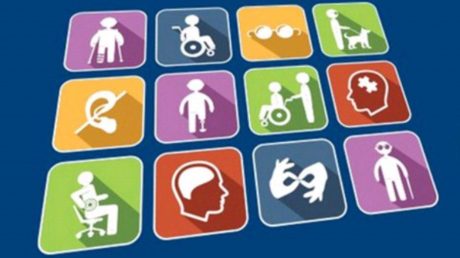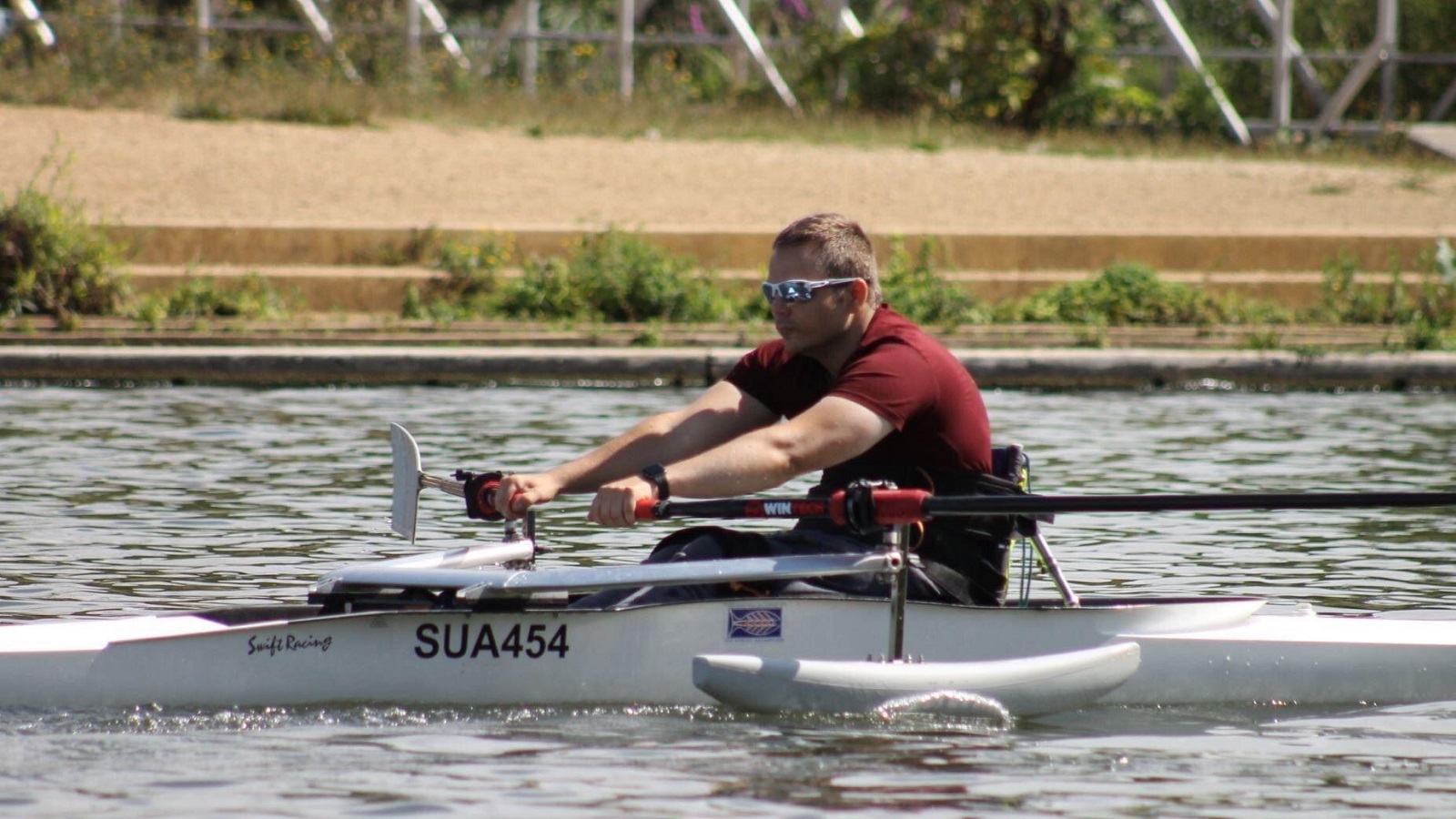Lee Cairns was serving in the Royal Air Force police when aged just 25, his car skidded on ice, causing a serious road accident. He had to be resuscitated at the scene. He suffered a spinal cord injury at T12, and after extensive rehabilitation, he was medically discharged from the RAF. He went on to have a career working for the emergency services, followed by working as a peer support officer in the charitable sector and then starting his own charity, Peer Advice Services UK.
Following our Q&A with Lee where he discussed his experience of returning to work following a spinal cord injury, here he provides an outline of the Access to Work Scheme to Alison Goldney. He also offers advice on how to access it and provides some top tips for returning to work.
Can you tell me more about the Access to Work Scheme (ATWS)?
It’s a government scheme to assist you to stay in or return to work if you have a physical or mental health disability. For example, if there’s a piece of equipment or physical assistance you need to enable you to do your job (eg a support worker), there are grants available to fund it. For example, over the years, I’ve been able to get equipment such as a lightweight wheelchair so that I can get to work.
To assist me with setting up PAS UK, I obtained a grant to pay for administrative support because it was recognised there are physical aspects to my role that I cannot undertake due to fatigue and my routines. The administrative support enables me to work a full day.
It’s a very good scheme that is assisting a lot of people to return to work and have a fulfilling career. It also benefits wider society as disabled people have a lot to give back with their experience and skillset. Also, of course, if they return to work, they are paying taxes! Another important dynamic is that having a disability gives you a different outlook on life and new skills that perhaps an able-bodied person may not have.
Is it means tested?
No, it is not. Therefore, regardless of your income or savings, provided you work more than one hour a week, you are eligible.
The scheme is limited to funding 5/7ths of the cost on the basis of a five-day working week. So, for equipment, for example, you have to make a personal contribution for the remaining 2/7ths, but this only applies if the equipment is used outside of the workplace.
Are you able to assist people with navigating the ATWS?
Yes, absolutely. It can be a bit of a minefield, so many of those I’ve helped over the years have found it helpful to have guidance completing the application. It’s important to ensure the application is completed in a way that ensures you convey precisely what you need. Otherwise, you can end up being turned down because they will deem it unnecessary.
There is an interview process, for people who require administrative support and I can help coach clients through what to expect to ensure they have the best possible chance of conveying their needs.
Can you provide some examples of what your clients have been able to access via the ATWS?
One client needed a support worker to drive him to work and drive him around during his working day so he could undertake his role. Funding for a support worker is a different test than that required to receive care from the local authority. You may not be eligible for care through your local authority but may well be eligible for support through ATWS.
I have assisted someone to obtain a lightweight wheelchair with a clip-on power attachment because they work on a site where there’s a lot of space between sites. By having the power attachment, they were able to get about easily. In addition, the ATWS provided them with a height-adjustable desk for their office and a standing wheelchair, so they can stand up and get pressure relief when they’re at their desk. While Access to Work is a generic scheme, the equipment and assistance provided are bespoke to each individual. I could give numerous examples of people getting wheelchairs and other mobility equipment that allows them to get to work. The best thing I can suggest is that people contact PAS UK and use our Access to Work support mechanism so we can guide them through it. Nothing is impossible – even HGV drivers have had vehicles adapted to allow them to return to work.
How long can it take to get the grant?
It can take several months as you will need to undergo assessments, such as with an occupational therapist (OT). There are also significant backlogs caused by Covid-19, which means it is taking up to a year for grants to come through.
Will your employer assist with ATWS or pay for equipment?
In my experience, many employers are not very knowledgeable about the scheme, and it comes down to the employee accessing it. An employee will always have to instigate Access to Work by getting in touch with them; all details can be found online. If an application is made within the first six weeks of starting a job, ATW can fund up to 100% of a claim. In normal circumstances, they will fund up to 80%, with the employer expected to cover the rest, less any personal contribution from the employee.
Tell me about the decision to start your own charity, Peer Advice Services (PAS) UK.
I was keen to have a new opportunity and challenge, and so I decided to look into starting my own charity where I could assist not only people with spinal cord injuries but also people with other disabilities. I took some advice about how to start a charity and found that the local authority had a scheme to assist entrepreneurs. This entailed being put in touch with a mentor who gave me vital guidance and support in relation to being a CEO. My mentor has continued to be involved even beyond the scheme as he really believes in the charity and the important support we provide to those who have suffered a life-changing injury or live with a disability.
What support does PAS provide?
We are centrally focused on spinal cord injury but provide support for all disabilities. We do have a focus on supporting military personnel, given my background, as I understand what is available to support those in the armed forces. A lot of my work is undertaken at the Defence Medical Rehabilitation Centre in Stamford Hall. We also provide support through weekly services at the Midlands Spinal Injuries Unit, where we meet anyone who requires assistance with things such as benefits applications or appeals. Common ones are assisting at tribunals relating to Personal Independent Payments, or PIPs), appeals in respect of NHS or local authority care, employment advice (in particular ATWS as detailed above), and housing and general advice relating to their disability.
It is sometimes as simple as being there to listen and help those who find themselves with their lives turned upside down find a pathway through and to see that there is a life after injury. We can also help those who are further down the rehabilitation journey and are perhaps out of hospital. They can access help through our helpline (01788 227347) or via our website.
What would be your top tips for someone returning to work?
Returning to work can be daunting, but don’t be put off by what you don’t know, make a plan and seek help. Disability isn’t the barrier you think it is. It’s absolutely a challenge, but it’s a journey worth taking because there are so many benefits, both monetary and from the point of view of mental well-being, the social side and the sense of worth that going to work provides.
Always be honest and upfront with an employer or prospective employer about your disability, the impact it has on your daily life and the adjustments needed so you can do a job.
Be honest with yourself about your ability to do a job. What we could once do is sometimes changed by disability. I fell afoul of this and made myself sick by trying to do shift work. Luckily, my employer had the capacity to accommodate change, and there was no harm done. It could have cost me a job, and it was an utterly miserable situation to be in. I could have saved myself a lot of time and heartache by being honest about what was possible.
If a job interests you and you are qualified, capable and interested, then go for it. If it doesn’t work out, try again, you never know where opportunities may lead. I certainly never considered that one day I would be CEO of my own organisation.
My last piece of wisdom is that regardless of anything, you are always the most viable person in the room! Don’t tell everyone else, just remind yourself of that.
You can find further information regarding our expertise, experience and team on our Personal Injury pages.
If you require assistance from our team, please contact us or alternatively request a call back from one of our lawyers by submitting this form.
Subscribe – In order to receive our news straight to your inbox, subscribe here. Our newsletters are sent no more than once a month.




